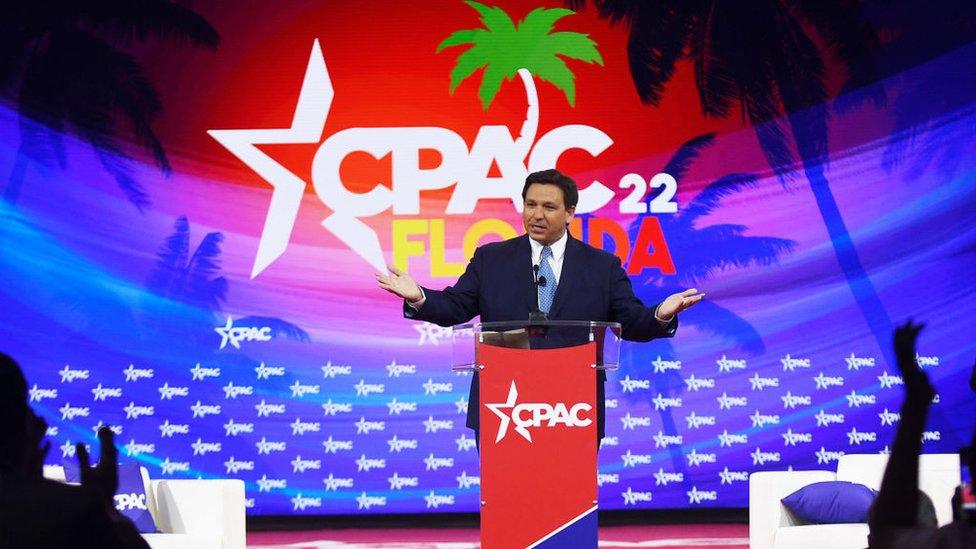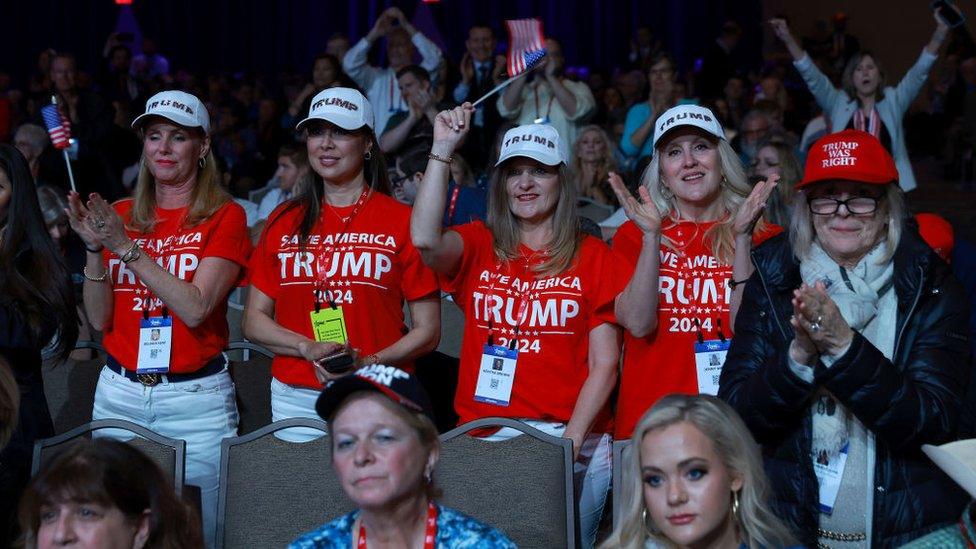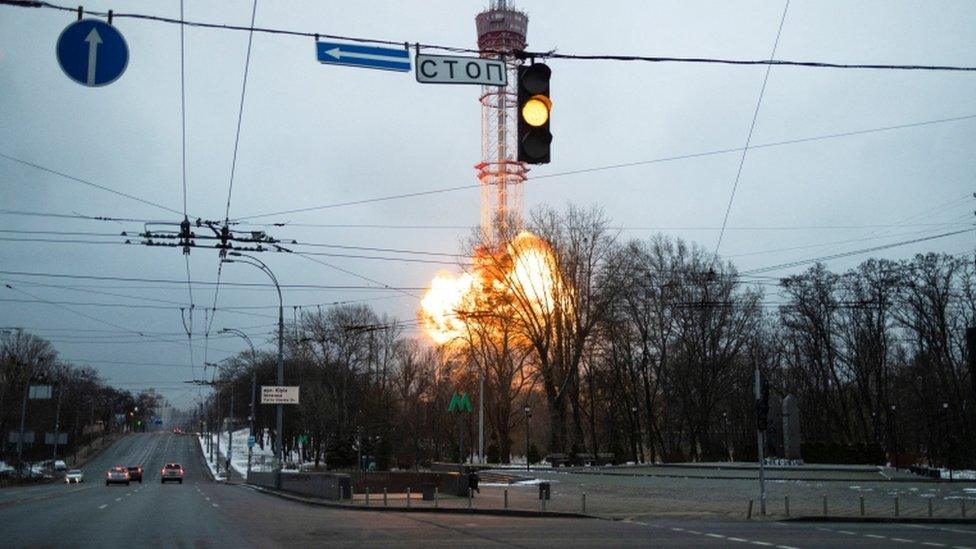CPAC 2022: US conservatives show little interest in Ukraine
- Published

Florida Governor Ron DeSantis, seen as a front-runner for Republican leadership, made no reference to Ukraine
The Conservative Political Action Conference, or Cpac for short, is usually a good way to gauge the mood of grass-roots activists within the Republican Party.
If the four-day event that concluded in Orlando, Florida, on Sunday night was any indication, the conservative base of the party is much more interested in the upcoming congressional mid-term elections in November and defeating Democrats than they are about Russia's invasion of Ukraine.
Some of the top Republican officeholders in the party, like Florida's Governor Ron DeSantis, Texas Senator Ted Cruz and Florida Senator Rick Scott, didn't mention Ukraine at all in their speeches.
Donald Trump, who took the stage on Saturday night, offered a quick condemnation of the invasion, but spent more time defending his interactions with Ukrainian President Volodymyr Zelensky that led to his first impeachment and his statements earlier this week calling Russian President Vladimir Putin a "genius". He added that Nato nations and current US leadership were dumb.
One of Mr Trump more loyal supporters, Florida Congressman Matt Gaetz, went further, questioning why the US should be "footing the bill for Ukraine" by imposing sanctions that could damage the American economy.

Russia attacks Ukraine: More coverage
THE BASICS: Why is Putin invading Ukraine?
IN DEPTH: Full coverage of the conflict

Others, like Louisiana Senator John Kennedy, warned of "evil" people who run countries without mentioning Mr Putin by name. And Florida Senator Marco Rubio was particularly careful in the Ukraine portion of his speech.
"No matter where you stand on this Ukraine-Russia situation, what we should have done beforehand, what we should do now," he said, "the one thing I think everyone can agree upon is that the people of Ukraine are inspiring to the world."
That's the kind of delicate language you seldom hear at Cpac when the topic is Iran or China.
The speakers who were the most direct in their condemnations of Russia, in fact, were ones who were commentators or foreign policy experts - like former National Security Adviser Robert O'Brien, radio show host Mark Levin and ex-White House adviser Sebastian Gorka - not current or aspiring politicians.
"We don't pretend when freedom loving people are being crushed and slaughtered by an enemy of the United States, that it doesn't matter. It matters," Levin said. "That doesn't mean we send American troops willy-nilly into these areas, but it also doesn't mean you sit on your hands and pretend nothing's going on."
US conservatives on Ukraine: "Putin saw how weak America is under Biden."
All of this suggests a very real divide within the Republican Party over how to handle Russia's Ukraine invasion. A straw poll of conference-goers found only 3% viewed Russia as the "greatest threat to America", versus 35% seeing China that way and 61% choosing "Joe Biden's incompetence". That same poll showed 59% of attendees wanted Mr Trump to be their party's nominee in 2024, far surpassing runner-up DeSantis's 28%.
Those numbers seemed to reflect the mood of the conference-goers, many of whom said they felt bad about the situation in Ukraine, but they had other concerns that were of higher priority - issues like immigration, inflation, public schools and what they see as government overreach in dealing with the coronavirus pandemic.
"I really, I really pray for that whole situation that it gets better," says David Gigowski, a 63-year-old business owner from Lakeland, Florida. "I just feel like our own country needs 110% of our attention and our resources, our treasure."
One of the key ingredients to Mr Trump's political success has been his ability discern the mood of rank and file conservative voters. Republicans who have to face the voters in the months ahead are well aware of this - which may be why, when they speak about Russia and Ukraine at all, they have been choosing their words carefully.

Most Cpac attendees said they wanted Donald Trump as the 2024 Republican nominee
Related topics
- Published27 February 2022

- Published11 February 2022
- Published21 January 2022
